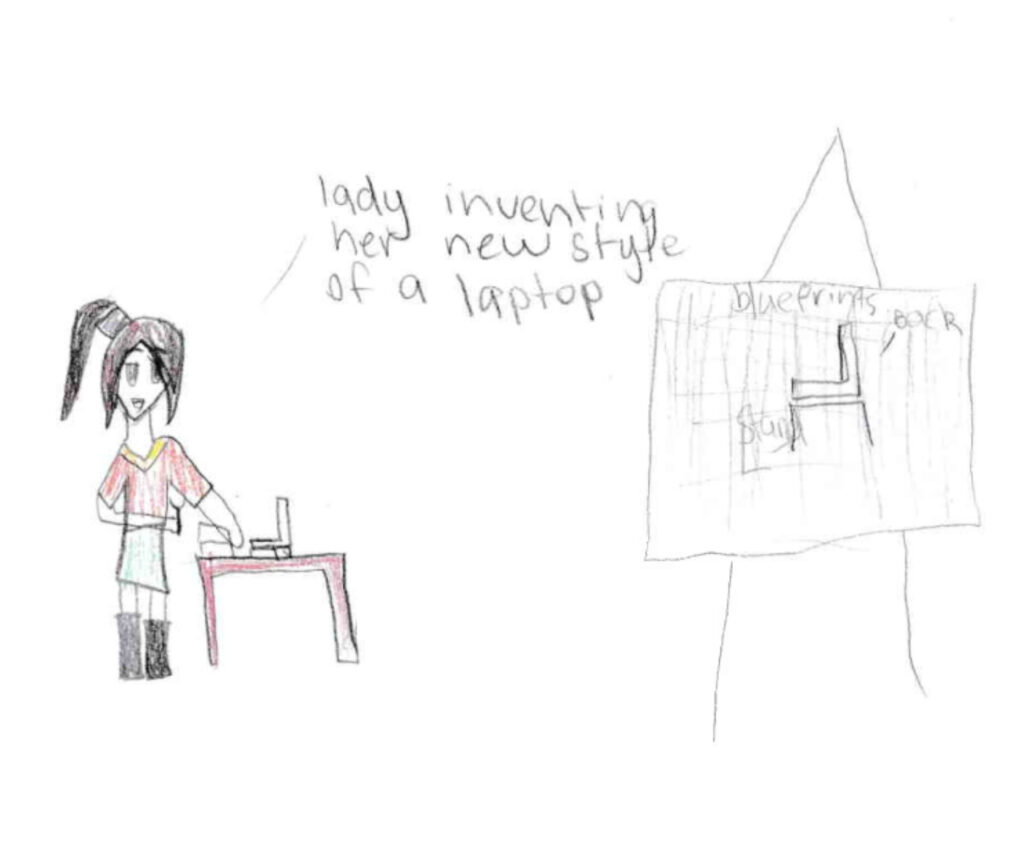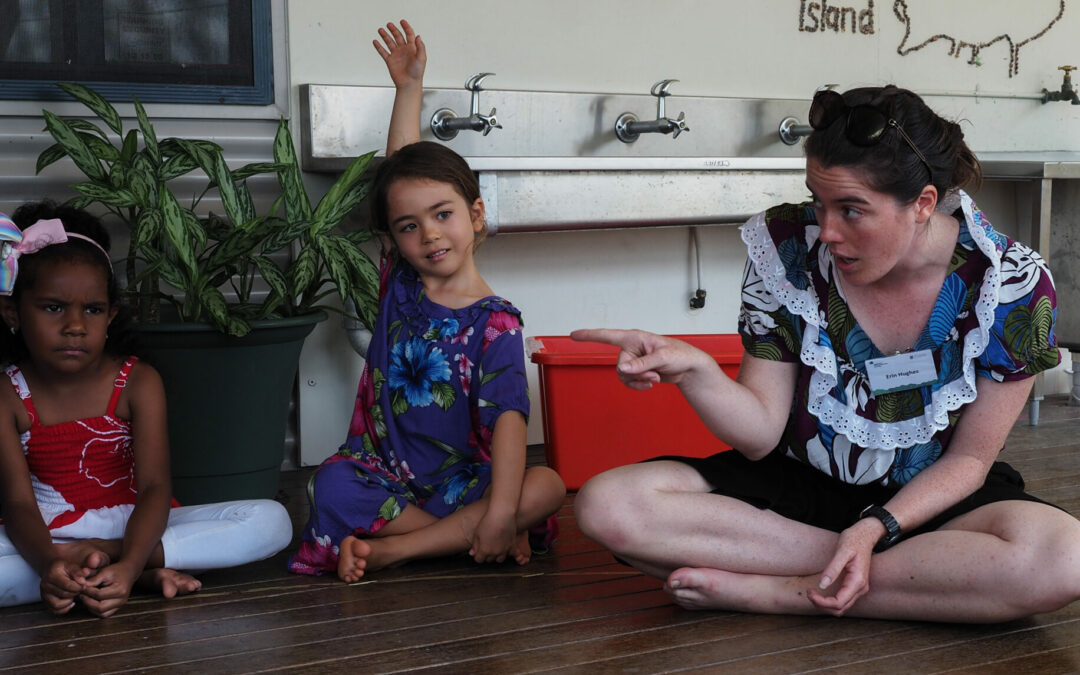In 2019 Erin Hughes received a grant from the MECCA M-Power program to undertake research into the educational impact of Regioneering workshops in the Torres Strait.
A sneak peak at the preliminary findings suggests the workshops are achieving their aims, breaking down stereotypes associated with engineering and fostering a deeper understanding of STEM.
Long-term engagement model
The EWB Torres Strait Regioneering program has been developed as a version of School Outreach tailored for First Nations students and students in remote communities. While School Outreach workshops are typically once-off experiences, this alternative approach was designed to foster longer-term engagement in groups that are underrepresented in STEM. To do this, the workshops are delivered by a diverse group of volunteers to younger students on an annual basis.
“Aboriginal and Torres Strait Islanders were the first engineers of Australia and continue to be the custodians of this country. By providing students the opportunity to learn about engineering and see the impact it could have on their communities, I hope we can provide further avenues to allow for a diverse generation of engineers. Acknowledging the wealth of traditional knowledge First Nations people have and including their voices at the forefront will help solve many of the complex problems facing our country today,” says Erin.
Erin has been leading EWB’s Torres Strait Regioneering trips since the program’s inception in 2016. Having grown up in the Torres Strait, her first hand experience inspired the development of this alternative model.
“Growing up in the Torres Strait I didn’t have access to these opportunities when I was in primary school. These trips were developed as a way for students to understand more about the opportunities available in STEM and break down some of the barriers which prevent many remote/regional and Aboriginal and Torres Strait Islander students accessing these fields,” reflects Erin.
The Mecca M-Power grant enabled Erin to evaluate whether this long-term engagement approach was meeting its aims. Due to the COVID-19 pandemic, this research has been delayed, with Erin relocating to the Torres Straits for 11 months to continue the data gathering process.
The program and the continuation of the research is beginning to return to normal, and preliminary findings point towards positive outcomes.
Measuring impact
To evaluate the program’s effectiveness, 31 students from Badu Island Primary School, Thursday Island Primary School and Thursday Island Secondary School were asked a series of questions on their perceptions of engineering. This involved 20 students who had undertaken EWB workshops over a range of one to four years and a control group of 11 students who had not undertaken any workshops. The questions included:
- What do you think engineers do in their jobs?
- What sort of people choose to become engineers?
- What type of work would engineers in the Torres Straits do?
The students were also asked to draw an engineer with a packet of pencils with the full spectrum of skin colours to choose from.


Promising signs
While the research is still ongoing, there is a strong trend that indicates the program is proving effective. Students who have undertaken multiple EWB workshops:
- Have a greater understanding of what engineers do. Even students who participated in the workshops but did not specifically remember it had a deeper understanding of an engineer than those who had never participated in a workshop.
- Are less likely to assume the common stereotype that engineers are male.
- Demonstrated a better ability to link engineering to their local context.
Moving forward
Erin is confident that this approach has enabled meaningful and effective engagement with students in the Torres Strait. Fresh from delivering the 2021 workshops, she says it’s clear the program provides a crucial platform for engineering in the Torres Strait.
Once the research is complete, Erin plans on presenting her findings to the participating schools before sharing them further. Stay tuned for the full outcomes of the project.
This article is produced as part of our RAP commitment to communicating our learnings and sharing case studies from implementing our RAP.


